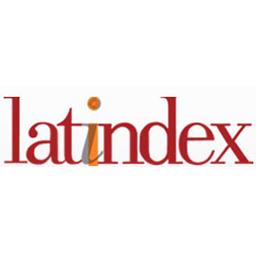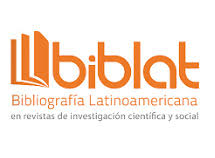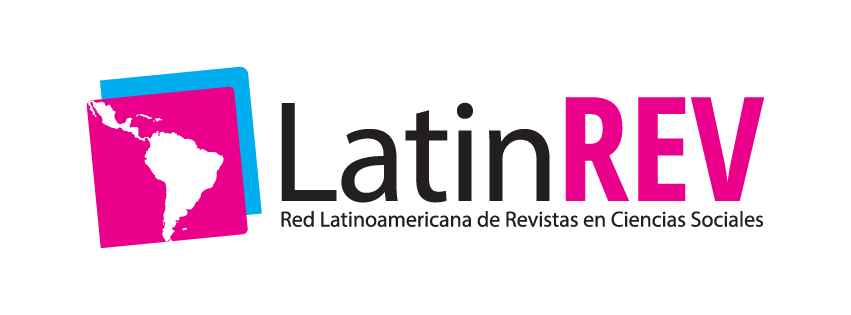Análisis Documental del Aprovechamiento del Recurso Eólico y Solar para la Sustentabilidad Energética
Resumen
Se realizó un análisis documental de la generación energética mediante cinco categorías con el fin de organizar la información. Los principales resultados son: para el logro del desarrollo sustentable se deben resolver los problemas del contexto que aquejan a la sociedad y lograr la preservación de la vida; la socioformación está orientada a mejorar las condiciones de vida en la sociedad; se analiza la evolución en las energías renovables en cuanto a la capacidad instalada y finalmente se destacan; conflictos sociales en la región del Istmo de Tehuantepec causados por la inconformidad en la distribución de la derrama económica que dejan los proyectos eólicos. Se concluyó la necesidad de involucrar a la sociedad en el desarrollo e implementación de energías renovables para reducir el índice de conflictos en la región del Istmo. Se recomienda continuar analizando las energías renovables en México y el Istmo de Tehuantepec.
Palabras clave
Texto completo:
PDFReferencias
Acosta-Banda, A., Tobón, S., & Aguilar-Esteva, V. (2020) Recursos eólicos y solar para la sustentabilidad energética desde el enfoque socioformativo. Ciencia UANL, 23(101), 32-41
Aghahosseini, A. Bogdanov, D., Ghorbani, N., & Breyer, C. (2017). Analysis of 100% renewable energy for Iran in 2030: integrating solar PV, wind energy and storage. International Journal of Environmental Science and Technology, 15(1), 17–36. DOI: 10.1007/s13762-017-1373-4
Alemán-Nava, G. S., Casiano-Flores, V. H., Cárdenas-Chávez, D. L., Díaz-Chavez, R., Scarlat, N., Mahlknecht, J., & Parra, R. (2014). Renewable energy research progress in Mexico: A review. Renewable and Sustainable Energy Reviews, 32, 140–153. DOI:10.1016/j.rser.2014.01.004
Altamirano-Jiménez, I. (2017). The sea is our bread: Interrupting green neoliberalism in Mexico. Marine Policy, 80, 28–34. DOI:10.1016/j.marpol.2017.01.015
Avila-Calero, S (2017) Contesting energy transitions: wind power and conflicts in the Isthmus of Tehuantepec. J Polit Ecol 24,993–1012. DOI: 10.2458/v24i1.20979
Baker, S., H. (2016). Mexican energy reform, climate change, and energy eustice in indigenous communities. Natural Resources Journal, 56, 365-390. Recuperado de: https://goo.gl/SoCikS
Baños, R., Manzano-Agugliaro, F., Montoya, F., G., Gil, C., Alcayde, A., & Gómez, J. (2011). Optimization methods applied to renewable and sustainable energy: a review. Renewable and Susteinable Energy Reviews, 15, 1753-1766. DOI: 10.1016/j.rser.2010.12.008
Boletín IIE, (2015). Energías renovables: una alternativa para México. Recuperado de: https://goo.gl/KZ6NSN
Bosch, S., Rathmann, J., & Schwarz, L. (2019) The Energy Transition between profitability, participation and acceptance – considering the interests of project developers, residents, and environmentalists, Adv. Geosci., (49), 19–29, doi.org/10.5194/adgeo-49-19-2019
Breyer, C., Bogdanov, D., Aghahosseini, A., Gulagi, A., Child, M., Oyewo, A. S., Vainikka, P. (2017). Solar photovoltaics demand for the global energy transition in the power sector. Progress in Photovoltaics: Research and Applications, 26(8), 505–523. DOI:10.1002/pip.2950
Brundtland, G. H. (1985) “World commission on environment and development,” Environmental policy and law, 14, (1), 26–30, Recuperado de: https://goo.gl/jYHwV5
Bustillos-García, L., & Bechara-Dickdan, Z. (2016). Sustentabilidad y desarrollo rural de los agroecosistemas bufalinos. Revista Venezolana de Gerencia, 21(73), 50-61. Recuperado de: https://goo.gl/RhkSGn
Buttler, A., Dinkel, F., Franz, S., & Spliethoff, H. (2016). Variability of wind and solar power. An assessment of the current situation in the European Union based on the year 2014. Energy, 106, 147–161. DOI:10.1016/j.energy.2016.03.041
Calzadilla, P., & Mauger, R. (2017). The UN’s new sustainable development agenda and renewable energy: the challenge to reach SDG7 while achieving energy justice. Journal of Energy & Natural Resources Law, 36(2), 233–254. DOI:10.1080/02646811.2017.1377951
Castillo, L. (2010). El gobierno de los bienes comunes. La evolución de las instituciones de acción colectiva. Ostrom, Elinor. Revista Pueblos y Fronteras Digital, 6(10), 363-375. DOI: 10.22201/cimsur.18704115e.2010.10.155
Copena, D., & Simón, X. (2018). Wind farms and payments to landowners: Opportunities for rural development for the case of Galicia. Renewable and Sustainable Energy Reviews, 95, 38–47. DOI:10.1016/j.rser.2018.06.043
Cruz-Garcia, F. A., Reyna-Gomez, A., Matus-Vicente, A. P., Sarabia-Gutierrez, C., Martinez-Aquino, J. A., Dorrego-Portela, J. R., & Iracheta-Cortez, R. (2017). Estudio de factibilidad económica del Parque eólico “BII CUBI.” 2017 IEEE 37th Central America and Panama Convention (CONCAPAN XXXVII). DOI:10.1109/concapan.2017.8278477
De Vries, L., J., & Verzijlbergh, R. A. (2018). How renewable energy is reshaping europe´s electricity market desing. Economics of Energy & Environmental Policy, 7(2), 31-50. DOI: 10.5547/2160-5890.7.2.ldev
Del Cid, A., Méndez, R., & Sandoval, F. (2011). Investigación. Fundamentos y metodología. México: Pearson Educación. Recuperado de: https://goo.gl/sYav9r
Demirbas, A. (2007) Modernization of Biomass Energy Conversion Facilities. Energy Sources, Part B: Economics, Planning, and Policy, 2 (3), 227-235. DOI: 10.1080/15567240500402784
Dunlap, A. (2017). Counterinsurgency for wind energy: the Bíi Hioxo wind park in Juchitán, Mexico. The Journal of Peasant Studies, 45(3), 630–652. DOI:10.1080/03066150.2016.1259221
Eriksen, T. H. (2016). Scales of Environmental Engagement in an Industrial Town: Glocal Perspectives from Gladstone, Queensland. Ethnos, 83(3), 423–439. DOI:10.1080/00141844.2016.1169200
Escobar, A., Holguín, M., & Osorio. J. C. (2010). Diseño e implementación de un seguidor solar para la optimización de un sistema fotovoltaico. Scientia Et Technica. Vol 16 (44), 245-250. Recuperado de: https://goo.gl/HPN3Bh
Estenssoro, Fernando. (2010) Crisis ambiental y cambio climático en la política global: un tema crecientemente complejo para américa latina. Universum. Revista de Humanidades y Ciencias Sociales, 2(25), 57-77. Recuperado de: https://goo.gl/WTDLPj
Fazlalipour, P., Ehsan, M., & Mohammadi-Ivatloo, B. (2018) Optimal participation of low voltage renewable micro-grids in energy and spinning reserve markets under price uncertainties. International Journal of Electrical Power & Energy Systems, 102, 84-96. DOI: 10.1016/j.ijepes.2018.04.010.
Fosado, R., Martínez, A., Hernández, N., & Ávila, R., (2018). El portafolio virtual como una herramienta transversal de planeación y evaluación del aprendizaje autónomo para el desarrollo sustentable. RIDE. Revista Iberoamericana para la Investigación y el Desarrollo Educativo, 8(16), 194-215. DOI: 10.23913/ride.v8i16.338
Frolova, M. (2010). Los paisajes de la energía eólica: Su percepción social y gestión en España. Instituto de Desarrollo Regional, 25(26), 93-110. Recuperado de: https://goo.gl/ueUfCV
Godden, L., & Tehan, M. (2016). REDD+: climate justice and indigenous and local community rights in an era of climate disruption. Journal of Energy & Natural Resources Law, 34(1), 95–108. DOI:10.1080/02646811.2016.1121620
Hanssen, F., May, R., Dijk, J., & Rod, J. K. (2018). Spatial multi-criteria decision analysis tool suite for consensus-based siting of renewable energy structures. Journal of Environmental Assessment Policy and Management, 20(3), 1-28. DOI: 10.1142/s1464333218400033
Hernández-Escobedo, Q., Perea-Moreno, A.J., & Manzano-Agugliaro, F. (2018) Wind energy research in Mexico. Renew. Energy, 123, 719–729. DOI: 10.1016/j.renene.2018.02.101
Hernández-Sampieri, R., Fernández-Collado, C., and Baptista-Lucio, P. (2014). Metodología de la investigación, México: McGraw-Hill. Recuperado de: https://goo.gl/R2oWvR
Hodge, B. M., Martinez-Anido, C. B., Wang, Q., Chartan, E., Florita, A., & Kiviluoma, J. (2018). The combined value of wind and solar power forecasting improvements and electricity storage. Applied Energy, 214, 1–15. DOI:10.1016/j.apenergy.2017.12.120
Huber, N. et al. (2017). Renewable energy sources: conflicto and opportunities in changing landscape. Reg Environ change (17), 1241-1255. doi.org/10.1007/s10113-016-1098-9
Huesca-Pérez, M. E., Sheinbaum-Pardo, C., & Köppel, J. (2016). Social implications of siting wind energy in a disadvantaged region. The case of the Isthmus of Tehuantepec, Mexico. Renewable and Sustainable Energy Reviews, 58, 952–965. DOI:10.1016/j.rser.2015.12.310
Huesca-Pérez, M. E., Sheinbaum-Pardo, C., & Köppel, J. (2018). From global to local: impact assessment and social implications related to wind energy projects in Oaxaca, Mexico. Impact Assessment and Project Appraisal, 36, 1–15. DOI:10.1080/14615517.2018.1506856
IEA, (2011). World energy outlook: Global energy trends. France, OECD/IEA. Recuperado de: https://goo.gl/EZwWNd
IPCC, (2015) Climate Change In R.K. Pachauri and L.A. Meyer (eds.). Synthesis Report. Recuperado de: https://www.ipcc.ch/
IPCC: Intergovernmental Panel on Climate Change. Geneva, Switzerland, p.151. ISBN: 978-92-9169-143-2. Recuperado de: https://goo.gl/cKhhhp
IRENA, International Renewable Energy Agency (2017). Renewable power generation costs in 2017. Recuperado de: https://goo.gl/R9Cdfu
Juárez-Hernández, S., & León, G. (2014). Energía eólica en el istmo de Tehuantepec: desarrollo, actores y oposición social. Problemas Del Desarrollo, 45(178), 139–162. DOI: 10.1016/s0301-7036(14)70879-x
Kaldellis, J. K., Apostolou, D., Kapsali, M., & Kondili, E. (2016). Environmental and social footprint of offshore wind energy. Comparison with onshore counterpart. Renewable Energy, 92, 543–556. DOI:10.1016/j.renene.2016.02.018
López-Manrique, L. M., Macias-Melo, E.V., May Tzuc, O., Bassam, A., Aguilar-Castro, K.M., & Hernández-Pérez, I. (2018) Assessment of Resource and Forecast Modeling of Wind Speed through An Evolutionary Programming Approach for the North of Tehuantepec Isthmus (Cuauhtemotzin, Mexico). Energies, 11, (3197) 1-22. DOI: 10.3390/en11113197
Manzano-Agugliaro, F, Hernández, Q. C, & Zapata, A. J. (2010). Use of bovine manure for ex situ bioremediation of diesel contaminated soils in Mexico. Separata ITEA, 106 (3), 197-207. Recuperado de: https://goo.gl/1G1mLU
Mesa, L., Carrillo, A. J. & Moreno, F. (2013). La cronicidad y sus matices: estudio documental. Investigación en Enfermería: Imagen y Desarrollo 15(2), 95-114. Recuperado de https://goo.gl/zZJ3zr
Mikati, M., Santos, M., & Armenta, C. (2012). Modelado y Simulación de un Sistema Conjunto de Energía Solar y Eólica para Analizar su Dependencia de la Red Eléctrica. Revista Iberoamericana de Automática e Informática Industrial RIAI, 9(3), 267–281. DOI:10.1016/j.riai.2012.05.010
ODS, Objetivos de Desarrollo sostenible, (2018) Agenda 2030 y los objetivos de desarrollo sostenible. Una oportunidad para América Latina y el Caribe. Naciones Unidas, Santiago. Recuperado de: https://goo.gl/WUQdfu
Pasqualetti, M., J. (2011). Social barriers to renewable energy landscapes. Geographical Review, 101 (2), 201-223. DOI:10.1111/j.1931-0846.2011.00087.x
Pauw, W. P., Klein, R. J. T., Mbeva, K., Dzebo, A., Cassanmagnago, D., & Rudloff, A. (2017). Beyond headline mitigation numbers: we need more transparent and comparable NDCs to achieve the Paris Agreement on climate change. Climatic Change, 147(1-2), 23–29. DOI: 10.1007/s10584-017-2122-x
Peña, T. & Pirela, J. (2007). La complejidad del análisis documental. Información, cultura y sociedad: revista del Instituto de Investigaciones Bibliotecológicas (16) 55-81. Recuperado de https://goo.gl/5WWqQi
Pérez-Denicia, E., Fernández-Luqueño, F., Vilariño-Ayala, D., Montaño-Zetina, L., & Maldonado-López, L. (2017) Renewable energy sources for electricity generation in Mexico: A review. Renew. Sustain. Energy Rev, 78, 597–613. DOI: 10.1016/j.rser.2017.05.009
Rea, J. E., Oshman, C. J., Olsen, M. L., Hardin, C. L., Glatzmaier, G. C., Siegel, N. P., … Toberer, E. S. (2018). Performance modeling and techno-economic analysis of a modular concentrated solar power tower with latent heat storage. Applied Energy, 217, 143–152. DOI:10.1016/j.apenergy.2018.02.067
REN21, (2018). Renewables 2018 Global Status Report. París, ISBN 978-3-9818911-3-3. Recuperado de: https://goo.gl/ZmGFHb
Rivera, L. (2014). Fuentes de energía, renovables y no renovables. Aplicaciones. Revista Escuela de Administración de Negocios, 77, 216-218. Recuperado de: https://goo.gl/C94imS
Salas-Razo, G., Juárez-Hernández, L. G. (2018) Hacia un modelo de desarrollo rural integral sustentable basado en la sociedad del conocimiento. Revista Espacios, 39, (Número especial CITED) 9. Recuperado de: https://goo.gl/SwvDSd
Schoijet, M. (2008). Límites del crecimiento y cambio climático. Innovación Educativa, 8(43), 94-96. Recuperado de: https://goo.gl/qgFSXj
SENER, (2018). Reporte de avance de energías limpias primer semestre en México. Secretaría de energía: Recuperado de: https://goo.gl/ox4pkp
Singla, A., Sethi, A., & Ahuja, I. S. (2018). A study of transitions between technology push and demand pull strategies for accomplishing sustainable development in manufacturing industries. World Journal of Science, Technology and Sustainable Development. DOI: 10.1108/wjstsd-09-2017-0028
Spence, A., Poortinga, W., Pidgeon, N., & Lorenzoni, I. (2010). Public Perceptions of Energy Choices: The Influence of Beliefs about Climate Change and the Environment. Energy & Environment, 21(5), 385–407. Recuperado de: https://doi.org/10.1260/0958-305X.21.5.385
Suárez, R. (2015). Reforma energética. De servicio público a modelo de negocio Politica y cultura, primavera. 43, 125-145. Recuperado de: https://goo.gl/X6RQJ5
Temper, L., Demaria, F., Scheidel, A., Del Bene, D., & Martinez-Alier, J. (2018). The Global Environmental Justice Atlas (EJAtlas): ecological distribution conflicts as forces for sustainability. Sustainability Science, 13(3), 573–584. DOI: 10.1007/s11625-018-0563-4
Tobón, S. (2012). El proyecto ético de vida y la socioformación. Cuernavaca, México: Instituto CIFE. Recuperado de: https://goo.gl/WQj7Mu
Tobón, S. (2017). Ejes esenciales de la sociedad del conocimiento y de la socioformación. Mount Dora (USA): Kresearch. Recuperado de: https://goo.gl/d7fCve
Tobón, S., González, L., Nambo, J., S., & Vásquez, J., M., (2015). La socioformación: Un estudio conceptual. Revista Paradigma, 36(1), 7-29. Recuperado de: https://goo.gl/FoDr52
Tur, G., & Urbina, S. (2016). La colaboración en portafolios con herramientas de la Web 2.0 en la formación docente. Cultura y Educación, 28(3), 601-632. DOI: i 10.1080/11356405.2016.1203528.
Vörösmarty, C. J., Green, P., Salisbury, J., & Lammers, R. B. (2000). Global water resources: vulnerability from climate change and population growth. Science; 289, 284–288. DOI: 10.1126 / science.289.5477.284
Wolsink, M. (2007). Planning of renewables schemes: Deliberative and fair decision-making on landscape issues instead of reproachful accusations of non-cooperation. Energy Policy, 35(5), 2692–2704. DOI:10.1016/j.enpol.2006.12.002
Wolsink, M. (2017). Co-production in distributed generation: renewable energy and creating space for fitting infrastructure within landscapes. Landscape Research, 43(4), 542–561. DOI:10.1080/01426397.2017.1358360
Wu, J., Guo, S., Huang, H., Liu, W., & Xiang, Y. (2018). Information and Communications Technologies for Sustainable Development Goals: State-of-the-Art, Needs and Perspectives. IEEE Communications Surveys & Tutorials, 20(3) 2389–2406. DOI:10.1109/comst.2018.2812301
Wurster, S., & Hagemann, C. (2018) Two ways to success expansion of renewable energies in comparison between Germany´s federal states. Energy Policy, 119, 610-619. DOI: 10.1016/j.enpol.2018.04.059
Wüstenhagen, R., Wolsink, M., & Bürer, M. J. (2007). Social acceptance of renewable energy innovation: An introduction to the concept. Energy Policy, 35(5), 2683–2691. DOI:10.1016/j.enpol.2006.12.001
Zendehboudi, A., Baseer, M. A., & Saidur, R. (2018). Application of support vector machine models for forecasting solar and wind energy resources: A review. Journal of Cleaner Production, 199, 272–285. DOI:10.1016/j.jclepro.2018.07.164
Enlaces refback
- No hay ningún enlace refback.
Copyright (c) 2021 Regiones y Desarrollo Sustentable

Este obra está bajo una licencia de Creative Commons Reconocimiento 4.0 Internacional.
REGIONES Y DESARROLLO SUSTENTABLE
Año XXIII, No. 44, Enero-Diciembre, 2023, es una revista de publicación continua editada por El Colegio de Tlaxcala, A.C., Avenida Melchor Ocampo No. 28, Col. San Pablo Apetatitlán, Apetatitlán de Antonio Carvajal, Tlaxcala, C. P. 90600 Tel. 52 (246) 46 4 52 33, ext. 1135, http://www.coltlax.edu.mx/openj/index.php/ReyDS, rev_regionesydesarrollosustentable@coltlax.edu.mx Editor responsable: Arturo Juárez Martínez. Reserva de Derechos al Uso Exclusivo No., ISSN:2594-1429, otorgados por el Instituto Nacional de Derecho de Autor. Responsable de la última actualización de este número, Departamento de Ediciones de El Colegio de Tlaxcala, A.C., Arturo Juárez Martínez, Avenida Melchor Ocampo No. 28, Col. San Pablo Apetatitlán, Apetatitlán de Antonio Carvajal, C.P. 90600, fecha de última modificación: 02 de febrero de 2024.







